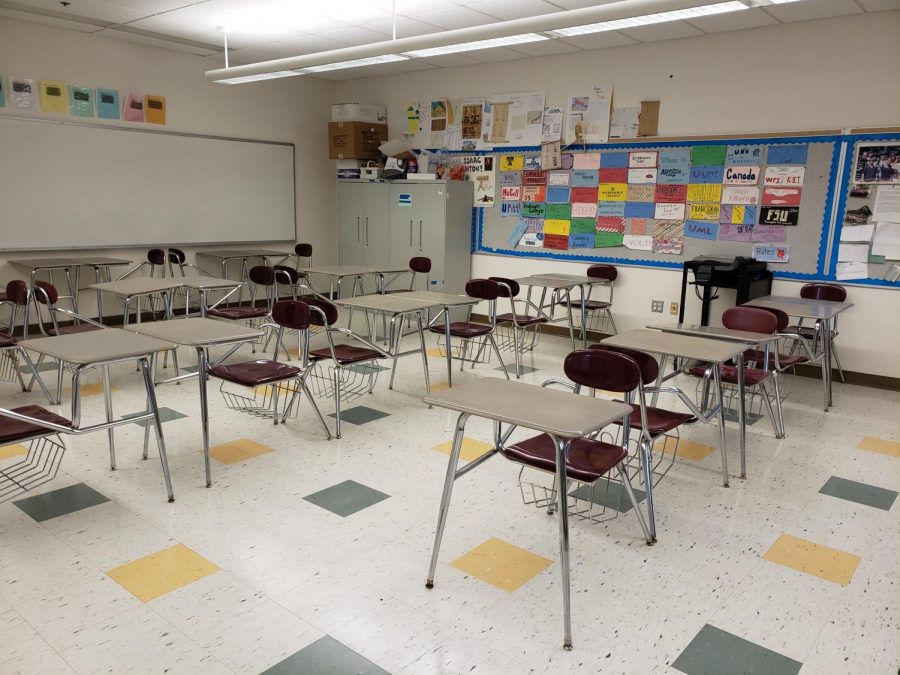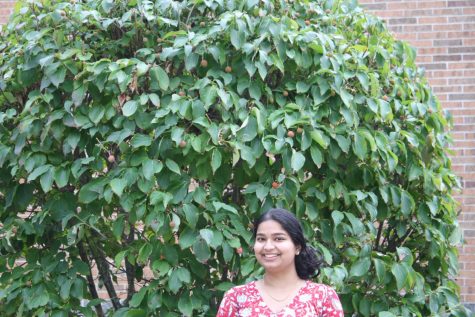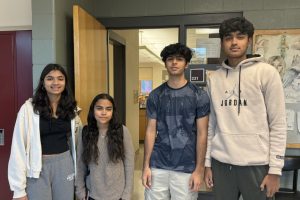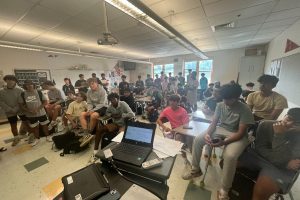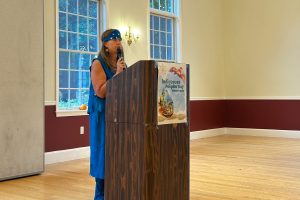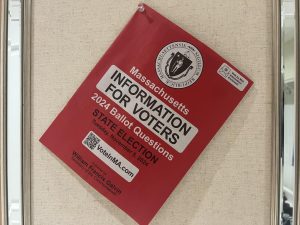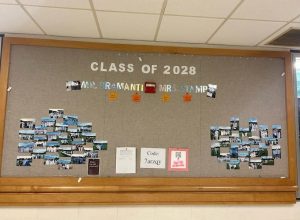The hybrid model is a privilege with inevitable shortcomings
Students’ desks are front-facing, separated by a back-facing desk
October 8, 2020
As I was walking through the courtyard one day for a mask break, I witnessed two girls taking off their masks and sharing a Starbucks drink. Not only was I appalled and honestly quite frightened, it was the first time I truly thought about safety precautions taken at Westford Academy. Although the school has taken numerous initiatives to mitigate the spread of COVID-19, the WA community must take greater measures to ensure the safety of its students and staff.
On October 7, Principal James Antonelli released a statement saying that a WA member has contracted COVID-19. Although WPS did not disclose the name of this individual, the school notified any close contacts of this individual, describing close contacts as, “being within 6 feet of the person for at least 15-minutes.”
Overall, WA has instituted some exemplary initiatives to mitigate the spread of the virus. From creating one-way hallways and limiting students in classrooms to restricting the use of water fountains, the school has implemented a plethora of new and innovative ideas to keep students safe. Above academics, teachers remind us every day that our health comes first.
However, while teachers at WA have been extremely effective in enforcing social distancing policies in classrooms, there are some shortcomings with being in a room of students in general. Even if the classroom is physically set up to promote a safe learning environment, daily classroom activities can sometimes breach these precautions. For example, some teachers pass-out papers to their students and students go to the teacher’s desks to ask private questions, which makes it extremely difficult to continuously maintain six feet of distance between myself and others. Even if classroom spaces are generally safe, it’s highly possible that I could be in the same environment as a coronavirus carrier. And by Principal Antonelli’s letter, I wouldn’t be precautioned of this COVID-19 carrier because I wasn’t a close contact by definition.
Especially outside of the classroom environment, potential virus transmissions are even harder to trace. In both courtyard and sports interactions among students and staff, social distancing rules are incredibly difficult to monitor and enforce. Even in the school hallways, students jostle one another to get to their next classes, and one-way hallway policies are often violated.
However, by choosing to come to school amidst the pandemic, the risk of potential transmission is inevitable, and part of the privilege that comes with in-class instruction.
Every day when I come home from school in my hybrid weeks, my mom always picks me up with a shocked face. She tells me every day how afraid she is at home, thinking that I could potentially get the virus, but how she’s happy at the same time that I get to experience in-person instruction. In some ways, the risks of transmission seems to be a sacrifice community members make in order to experience important social interactions with peers and teachers in schools.
In order to alleviate potential coronavirus transmissions, some schools, such as Lexington High School, have implemented a daily checklist for students to take each morning before coming to school. If WA also implemented such a practice, this could hold more community members accountable for helping to reduce the spread of COVID-19.
“Thank you for your cooperation; it is extremely important that you complete this wellness check on each of your children, every day before school at home in order to reduce the risk of COVID-19 spread,” the LHS letter reads.
Ultimately, I know it isn’t easy to control some decisions community members choose to make outside of the school and classroom environment. But with each hazardous choice a community member makes, we are putting others at risk. The virus has now spread into WA, and we must take the actions necessary to contain it.

